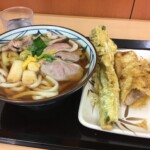
Marukame Seiso part-time job
first day of work (esp. during pregnancy)
On a sunny afternoon, I stepped into this bustling noodle store with a lot of nervousness and anticipation. As soon as I entered, I noticed a handsome senior sitting in the corner with his cell phone in his hand. However, when his eyes swept over my new face, he was instantly attracted to me. He put down his cell phone, walked up to me, and warmly asked me if I needed any help.
"You're new here, aren't you? I'll help you with the setup and prep work."
The warmth of his voice made me feel at ease. When he realized that my underwear was not white when I was changing in the changing room, he immediately suggested that he would take me upstairs to buy some clothes from the shopping mall. It was only later that this senior told me that he was actually the chef of the restaurant's noodle-making business.
That day was a discount day, and the influx of people gave me a deep understanding of the hard work and busyness of a restaurant chain. As a rookie, I was originally asked to make tempura, but due to the shortage of manpower, the veterans were so busy that they had to take care of it. I was assigned to wash the customers' plates in the dishwasher, and after the dishwasher program was finished, I had to check each plate carefully to see if there was any residue, and if there was any residue, I would pick it out, wash it by hand, and then return all the plates to the kitchen cabinets or pass them directly to the noodle cooks.
When I was asked to settle the bill, I had no idea where to start and was anxious. Luckily, the veterans were very friendly and took the initiative to help me out. The head chef was also there to tell me what to do:
"I'm sorry I didn't have time to teach you today, but I'll take my time next time."
As the crowds gradually dispersed, there was finally a brief respite. We were able to enjoy the leftovers, cook our own noodles, and there was an unlimited supply of tempura and rice balls (as seen in the photo gallery below). Of course, all of this had to be done in five minutes, because then it was time to get busy with the dishes, and every night there was a big cleanup until everything was in order.
After the first day, the store manager asked me if I could adapt to the working environment, and asked me to fill in the attendance sheet for my part-time job. Thus, my part-time job life officially started, and I was full of expectations and anxiety as I was about to start learning while working. This day's experience has strengthened my determination to grow up in this industry, and I will face up to whatever challenges I may encounter in the future.
Japanese for Checkout
In my subsequent part-time job, I learned a lot of udon noodle related phrases and how to pay the bill. I would like to organize them here, so that if you are going to work in the Japanese food industry in the future, you will be able to get used to it faster and lessen the tension and pressure in the workplace.
Basic Common Words
- Accounting (Okaikei): Checkout. The process of paying for a purchase at a restaurant or store.
- Total (Leave a Message): Total Amount. The sum of all item prices.
- Denpou (でんぴょう): The bill. This is the paper that lists all purchases.
- Fee (Shoharai): Payment. Refers to the process of making a transaction for goods or services purchased.
- Otsuri (おつり): Change. Refers to the amount of money returned when the amount paid exceeds the amount spent.
- Credit Card: Credit card. A form of payment.
- Cash (げんきん): Cash. Currency or banknotes used for direct payment.
- Levy (りょうしゅうしょ): Receipt. A document certifying the amount of payment.
- Wanxian (あてさき)Name: Name. When you get the receipt, you need to ask the customer what name you are filling in.
Reception Languages
- IrakushaimasWelcome. Whenever a customer enters the store, you must shout it out loud.
- KashikomarimashitaI'm not sure how to use it. Only used when working at a restaurant, but "承知いたしました" is used at workplaces.
- Shao々お待ちくださいPlease wait. For example, if the noodles take a long time to make and the customer has to wait.
- Staying with usIf you've been waiting for a long time, we'll be happy to help you with your order. If you are served udon slower than expected, or if you are waiting too long for the checkout, you should say this to the customer.
- Fearful entry: Sorry for the trouble. Sentence used to remind guests that they need to bring their own plates to the checkout counter.
- ありがとうございますThank you. Say it at the end of the checkout and when the guests bring back their trays.
- 訳ございません: Be very sorry. Apologize loudly when you serve the wrong dish or break a plate.
Checkout Process and Common Mistakes
- Guests go to the checkout counter (the following text is in Chinese: here to help you check out)
- 🙅: Kochira no reji hen doo うぞ.
- 🙆: Kochira's RejiCommitment(うけたまわります).
- After confirming the customer's food order (the following text is in Chinese: 這樣對嗎).
- 🙅: こちらでよろしかったでしょうか?
- 🙆: kochiradeYOROSHIDeShouka?
- Read out the amount of money (in Chinese: 總共多少錢).
- 🙅: ○○円になります。
- :○○円でLeave a messageI'm not sure how much I'm going to pay for this. /Total: ○○yen.
- Ask the guest if he/she has an application point card (Chinese: 请問有點數卡嗎).
- 🙅: (tells nothing)
- 🙆: ポイントカードお持ちですか?
- Ask the customer how to pay (the following text in Chinese: 請問要怎样方式付錢呢).
- 🙅: お支払いはどういたしますか?
- 🙆: Payment Methods for DuoNasimasuK?
- Payment
- If you take cash from a customer
- If it is not just cash or (Chinese:收您現金多少。)
- 🙅: ○○円からお預かりします。
- 円:○○円restrain restrainPre-ordering.
- If the amount of cash is just right (Chinese: 金額剛好).
- 🙅: ちょうどお預かりします。
- 🙆: ちょうどChikudai (ちょうだい)Shimasu. /Chirodo Itadakimasu.
- If it is not just cash or (Chinese:收您現金多少。)
- If you take a credit card from a guest
- Lump sum (Chinese: 可以一次付清嗎).
- 🙅: (tells nothing)
- 🙆: お支払いはIchiban (fetch)De Yoroshi Desuka?
- If a signature is required (For the text below, please sign.)
- 🙅: こちらにご署名をお願いします。
- 🙆: Leave a message to be signed by KochiraDekimasuka?
- If the customer's card cannot be used (The following text is in Chinese: This card cannot be used. Add words such as "sorry" to soften the tone).
- 🙅: The kanji kaido is made to be used.
- 🙆:Translation of the translation of a piece of paper into a bookLeave a Messageようでございます.
- Lump sum (Chinese: 可以一次付清嗎).
- If you take cash from a customer
- Issue invoices/receipts, change money
- If there is only an invoice (the following text is in Chinese: Here is your receipt.)
- 🙅: こちらレシートになります。
- 🙆: ResistantLeave a messageThe
- If you need to make change, make the change first and then give the invoice (the following text in Chinese: first return you (the amount of the large bill), then this is the remaining change, and this side is your invoice).
- 🙅: お返しは○○○○円になります。 こちらレシートになります。
- So_1F646↩:お先に○○○○yenReturnsI'm not sure if I'll be able to make it. The return of the remaining ○○ yen and the reset.        ãThe
- If there is only an invoice (the following text is in Chinese: Here is your receipt.)
- Say thank you to the customer (The following sentences are in Chinese: 謝谢). Some stores do not allow you to use the past tense, so check with the store manager before you start work).
- 🙅: ありがとうございました.
- 🙆: ありがとうございますThe
Liturgical Details
- Always use both hands when taking anything from a customer.
- It is ideal to read out the name and quantity of the menu when the customer can hear your voice when you hit the cash register.
- Money should not be put into the cash register immediately, but should first be placed temporarily in a cash tray, etc. to prevent errors in making change.
- Give me the change first, then the invoice.
Experience of Working
Japan's largest udon noodle chain, Marugame Seimen, is basically found in busy shopping malls and is always crowded, but it manages to cope with the large number of people in an orderly fashion, with the entire kitchen operating in an efficient circle, producing delicious and affordable noodles quickly. As a wage earner, I quickly realized what made this job so special: not only did I get to enjoy a hearty staff meal, but I could also save a lot of money on living expenses between lunch and dinner. So I often ate all my food in one go, grateful for the convenience of the job.
However, the hustle and bustle of the place also left me with little room to breathe, and even the time to drink water was a luxury. The pace of the day is very tight, from washing dishes and preparing ingredients to cooking noodles and deep-frying tempura, every step needs to be done quickly and accurately. Although I have not been here long enough to learn the art of noodle making, I feel a bit sorry for myself, but I still try my best to absorb every opportunity to learn.
Every day when I work in Marugame, I can feel the friendliness and support from my colleagues. Although the work is very hard, they never have any prejudice against me because I am a foreigner, instead, they are eager to teach me. Even if I occasionally made a mistake and broke a dish, they would not scold me, but would take the initiative to help me apologize to the customer and encourage me to keep up the good work. One of them, an elderly uncle, left a deep impression on me. When there were not many customers in the store, he would always remind me to take a good rest and enjoy the staff meal, and he would even take advantage of my English skills to let me serve foreign customers. This kind of care made me feel like a spring breeze and made me cherish this working experience even more.
Trivia
To this day, I still visit Marugame from time to time, savoring the steaming bowl of udon noodles and reminiscing about my time here. Every bite of noodle seems to remind me of my busy and fulfilling working days, and makes me feel the meaning and value of my work. The following is a compilation of my work experience at Marugame Noodles:
- How to find: Job opportunities found through the Eastern Technical University's school website.
- Japanese language ability: Hold a JLPT Level 2 certificate.
- Reason for Selection: I love udon noodles and would like to learn cooking skills and improve my Japanese for daily life.
- Reasons for adoption: Willingness to work during holidays and the beginning and end of the year, and willingness to work with the store manager's needs to adjust shift schedules.
- Working Environment: The atmosphere in the staff room is good, with two sets of overalls (self-wash required), but the work is busy and strenuous.
- job offer: (2016) Hourly rate of ¥1,050 (holiday hours + ¥150) and employee meals are provided.
- learning abilityThey learned how to make udon noodles, how to make tempura, and how to use the terms for working, visiting, and daily life.
I was able to eat every meal here, and the memories of this work will always remain in my heart and become an integral part of my life's journey.
Final Thoughts
During my exchange period at TUT, I experienced the campus atmosphere and the hard work of a chain restaurant in Japan through the school festival, the basketball club's dormitory and part-time job. Although there were a lot of challenges in the process, I also gained a lot of valuable experience and memories. I hope that what I have shared with you will be helpful to those who are planning to join a club or try part-time jobs.
Related Resources
- Battelle's reception terminology: Introducing honorific expressions and correct ways to use the terminology.
- Bijinshi Mana "Shoshi accounting terminology" is required for sales, catering, and hospitality industries!
- What is the correct way to talk to a customer when receiving him in Reggie? Explanation of basic flow and SkillApp concepts





Message Center Feedback